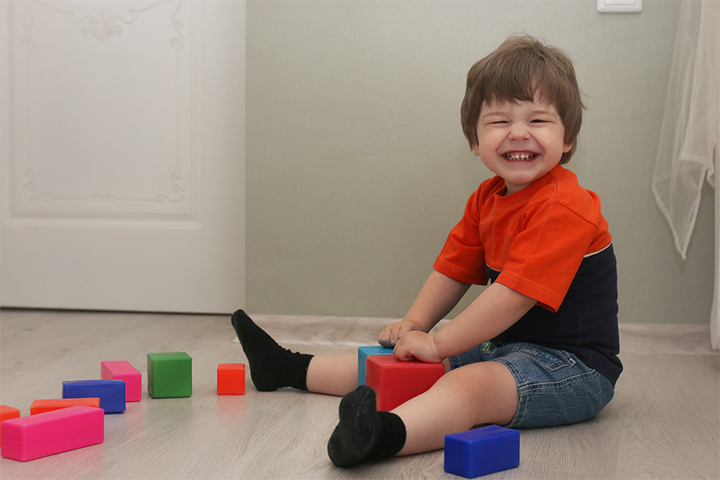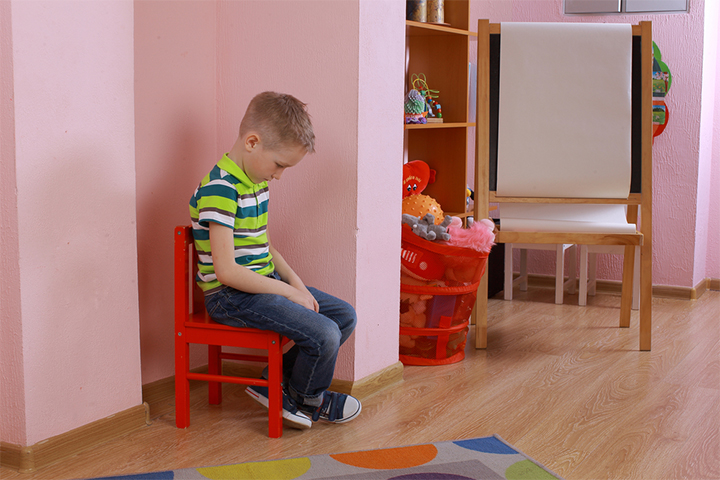
Image: Shutterstock
If you’ve ever come in contact with a screaming toddler who is prone to tantrums then you probably know that teaching them the right tools to cope with their emotions is a life saver for everyone. Many parents come short when their little one starts to cry out of the blue, but you should know that this is because they are yet to develop key executive functioning skills in order to regulate their emotions and reactions. Although you may not be aware of what they are on paper, chances are that you have them (hopefully) and need to intentionally teach them to your kids. Executive functioning skills are what helps us regulate our behavioral impulses and monitors our self control. So the sooner your child gets a grasp on them the better. Here are the 7 executive functioning skills and what you can do to ensure that your child has them.
Executive Functioning Skills
Image: Shutterstock
Executive function refers to the various cognitive processes in the brain that enable individuals to function effectively. These processes play a vital role in skill development and self-control, and children must acquire them throughout their formative years, from infancy to adolescence. Let’s delve into these essential executive functions:
- Paying Attention: The ability to focus on a task or activity.
- Task Completion: Carrying out a task from beginning to end.
- Self-Motivation: Initiating and sustaining personal drive.
- Self-Control: Exercising restraint and managing impulses.
- Organization and Decision-Making: Arranging information and making choices.
- Time Management: Efficiently allocating time for task completion.
- Mental Flexibility: Adapting to changing circumstances during a task.
- Accurate Self-Assessment: Objectively evaluating one’s abilities and achievements.
- Memory and Recall: Retaining and retrieving information as needed.
- Task Initiation: Actively starting and engaging in a project.
These skills are foundational for social interaction, task accomplishment, and impulse regulation. Nurturing these abilities in early childhood is crucial, as they significantly influence a child’s overall development and future prospects.
Ways To Help Your Child Develop Executive Functioning Skills
1. Routine
Image: Shutterstock
Daily routines are important to establish during childhood as they can help create order and predictability, two things that your child will greatly benefit from. Even something as simple as teaching your kids how to pack their own lunch or dispose of waste correctly and ensuring that they do it everyday can be beneficial. You can give your kids some age appropriate chores so that they can establish a routine that works for them. Then you can add to this list as they grow older and more capable. You can even get them a chart or a daily diary and make a checklist so that they can tick things off the list as they go along.
2. Afterschool Homework Time
Image: Shutterstock
If your child comes home from school and immediately gets to their homework, congratulations, you’ve finally found a unicorn. Most kids come back from school and take a nap or eat a snack and completely forget about their homework altogether. This isn’t uncommon in the early days though, and a little reminding goes a long way. But what would be more helpful is to set aside a specific time to do homework after school. Allow your child to eat a snack and rest for a bit. They can even go out and play with the kids but when it’s time to hit the books, make sure they do just that.
Establishing a routine where your child tackles their homework early can promote effective planning skills. It’s essential to discourage habits like a teenager waiting until 11pm on a Sunday night to start a book report they’ve had a week to complete. Implementing this structured approach will prevent future trouble and minimize arguments.
3. Consequences
Image: Shutterstock
Not everything can be smiles and sunshine. Sometimes your kids need to face consequences as it helps develop self-control. If your toddler learns that throwing tantrums will get them nowhere but in time-out, they will likely stop having them in order to get a reaction from you. Consequences should be age appropriate as well. So, keep that in mind before you reprimand your little one.
4. Teach Self Evaluation Through Questions
Encouraging self-assessment is a critical executive functioning skill. When this skill is underdeveloped, individuals may be surprised by their failures. It’s important to teach children to introspect, helping them understand their strengths and areas for improvement. Questions like, “Are they patient? Are they kind? What could they have done better today?” can guide them in this self-discovery process.
Now that you know all the executive functioning skills that your little one needs to thrive, you’ve got nothing to be afraid of. Take the time to impart these skills and watch your child bloom. Happy parenting!
















